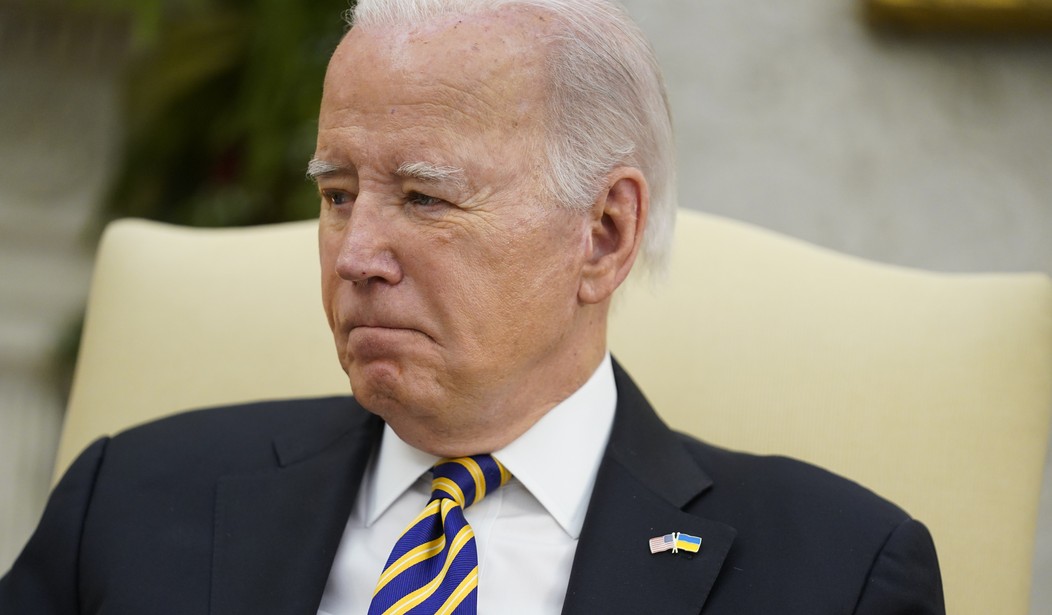As tensions have mounted recently between the United States and Israel over its prosecution of the Israel-Hamas war, the Biden administration has come up with yet another way it believes it can put pressure on Prime Minister Benjamin Netanyahu's government. According to a report from the Financial Times, the Biden administration is creating plans that would require goods made in any West Bank Jewish settlements to be labeled specifically as coming from that region. The possible move is one that U.S. officials may believe is yet another way to compel Israel into a cease-fire with Hamas.
The ongoing saga of Israel being thrown under the bus by Biden.
— Adam Milstein (@AdamMilstein) April 5, 2024
The Biden administration is drawing up plans to require labeling of products originating from West Bank settlements, according to U.S. officials.https://t.co/bE0uW0ev8s
Currently, there are no definite plans in place for the labeling. If plans go through, it would reverse another Trump-era policy from 2020 that required those goods merely to be labeled "Made in Israel." The administration was said to be close to making the move in March when Israeli Finance Minister Bezalel Smotrich announced an expansion of settlements in the West Bank. The announcement coincided with a visit from Secretary of State Antony Blinken and reportedly angered the Biden administration, which stated that the expansion was "inconsistent with international law." Just two days later, the U.S. threw Israel under the bus when it abstained from a ceasefire resolution at the United Nations. The abstention allowed the measure to pass, and U.S. officials decided not to announce a change in any labeling requirements at the time.
Such a move would be in line with the labeling requirements of other nations. The highest court of the European Union (EU) ruled in 2019 that EU countries could not just label products as being made in Israel because it might, in the words of the European Court of Justice (ECJ), mislead consumers about the fact that Israel, "is present in the territories concerned as an occupying power and not as a sovereign entity." The Court went on to say that consumers should have product information to make informed choices relating "not only to health, economic, environmental and social considerations, but also to ethical considerations," as well as the observance of international law.
Kirby, when asked today about the US pressuring Israel for a ceasefire deal: “We just said let's get a deal done so we can get the hostages back.” Translation: Only Israel needs to compromise. FJB
— Raylan Givens (@JewishWarrior13) April 5, 2024
The report from the Financial Times goes on to say that changing labeling requirements "would make it easier for US consumers to avoid the products." But what if it would do the exact opposite? A recent Pew Research Center poll showed that roughly 58 percent of Americans think that Israel's reasons for fighting the terrorist group Hamas are valid. A change in labeling would assist Americans who want to show support for Israel, thus making it easier to know which products to buy. Any such labeling change would also bring a fiery reaction from Israel, which has already described such a policy change as "anti-Israel and discriminatory." Surprisingly, it has been U.S. policy for decades that products made in the West Bank were labeled as such. But former President Donald Trump changed the policy in 2020. In 2016, former President Barack Obama stated that labeling products "Made in Israel" might lead to fines.
Communication between the U.S. and Israel has become edgy as of late. During a phone call on Thursday between Joe Biden and Israeli Prime Minister Benjamin Netanyahu, Biden called for an "immediate cease-fire" to "protect innocent civilians" and provide more humanitarian aid to Gaza. Biden stated that Netanyahu must "announce and implement" certain "concrete and measurable steps" to protect aid workers and focus on the humanitarian crisis in Gaza. Secretary of State Blinken continued the strong-arming of Israel, saying, "If we don't see the changes we need to see, there will be a change in our policy."
There have been several instances where Biden and Netanyahu have been on less than friendly terms, with most of the acrimony coming from Joe Biden. Biden allegedly hung up on Netanyahu during a December phone call while also criticizing his handling of the war. Biden also called the Israeli response to the October 7 attack that killed roughly 1,200 people, including 33 Americans, "over the top." Following that response, Biden allegedly, in private, called Netanyahu "a bad f**king guy."
Just an observation, but Israel should be getting a bit tired of Joe Biden's brand of diplomacy that appears to be reserved especially for them.
Blinken warns: “Israel risks becoming indistinguishable from Hamas”
— Andrea Tantaros (@AndreaTantaros) April 5, 2024
What fraudulent, twisted word vomit from our feckless Secretary of State further fueling antisemitism.
Blinken & this Admin risks becoming indistinguishable from the Mullahs & Khamenei. https://t.co/MQYLv2iACI














Join the conversation as a VIP Member